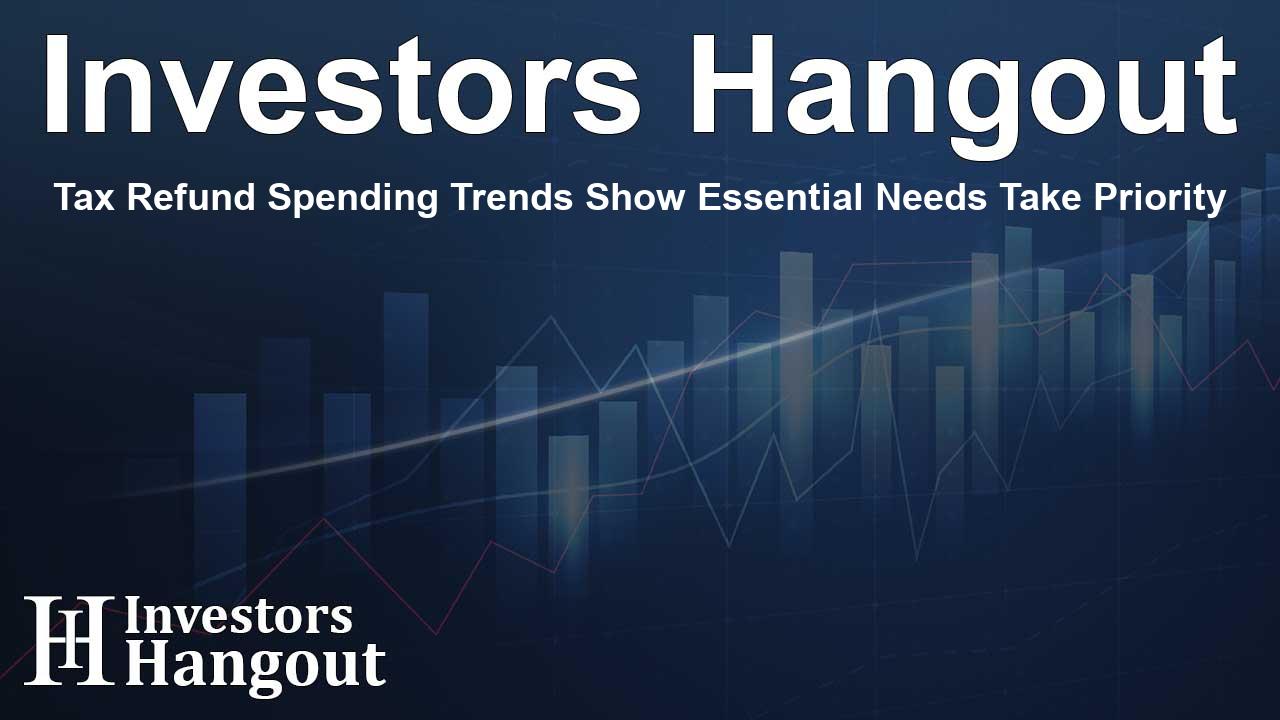Tax Refund Spending Trends Show Essential Needs Take Priority

Understanding Tax Refund Spending Trends in 2025
A recent survey reveals insightful trends among taxpayers regarding how they are planning to spend their tax refunds in 2025. An impressive sixty-one percent of the surveyed individuals indicate that their tax refunds significantly contribute to their budgeting efforts—a notable increase from last year’s 52%.
Essential Expenses Take Center Stage
Digging deeper into the survey results, nearly two-thirds, or 64%, of taxpayers expressed that they have already utilized or have plans to spend their tax refunds. A substantial portion is directing these funds toward essential needs. Specifically, 58% reported that they would allocate their refunds toward rent or housing costs, while 48% plan to focus on groceries. Furthermore, 29% indicated they would use their refunds to pay down credit card debt, reflecting a keen awareness of financial obligations. Additionally, 13% of respondents are considering home repairs as a priority for their refunds.
Judicious Spending and Future Financial Strategies
Interestingly, those who haven't yet utilized their refunds are exercising caution. A remarkable 72% plan to use their refunds strictly for necessities. This indicates a shift in the mindset of many Americans who are prioritizing thoughtful and strategic spending over discretionary purchases.
"The data underscores a significant shift in spending habits, where thoughtful choices concerning finances are becoming increasingly crucial for Americans. Tax refunds are crucial components of their financial strategies this year," comments Seth Babb, Head of Consumer Product at TaxSlayer.
The Average Refund and its Surprising Impact
Survey respondents reported an average tax refund of just over $2,300. This figure exceeds the anticipated average of $1,700 projected by respondents in December 2024 but is lower than the IRS's reported average of $3,453 from February 2025. This discrepancy showcases the variability in financial planning versus actual tax outcomes.
The June survey revealed that initially, only 22% of respondents expected a larger refund compared to the previous year. However, 32% ultimately received a more substantial refund, leading to an overall positive sentiment. In fact, 62% of taxpayers expressed feelings of being "happy and surprised" by their refunds, a significant increase from 40% the previous year.
Factors Contributing to Increased Refunds
Reasons behind the larger refunds varied, including increased work hours (37%), adjustments in deductions or withholdings (31%), and obtaining a pay raise or promotion (16%). In contrast, those experiencing lower refunds cited job loss (29%) or moving into a higher tax bracket (21%) as contributing factors.
Filing Behavior Insights
The survey also examined filing behaviors. Back in December, 43% of respondents expressed intentions to file early, and 54% planned to file on time. Ultimately, the outcomes fell in line with these plans: 41% filed early, 57% filed on time, and a mere 2% requested an extension.
As we look to the future, the trend of early filing is expected to persist. Among those preparing to file early for the 2026 tax season, the primary motivations are to receive refunds sooner (47%) and to avoid stress during Tax Day (29%).
The Benefits of Early Filing
"Filing your tax return early not only grants you time to make informed financial decisions but also gives you a clearer picture of upcoming financial opportunities. Knowing your refund amount helps you turn that refund into strategic planning for your goals," advises Babb.
About TaxSlayer
TaxSlayer is an online tax filing platform renowned for its user-friendly interface and exceptional customer support at competitive rates. Celebrating 60 years in service, this Augusta-based company has successfully processed over 11 million federal and state e-filed tax returns in the previous year and facilitated over $22 billion in refunds. With over 29,000 reviews on consumer review platforms, 82% of customers rate TaxSlayer as Great or Excellent. In addition to guaranteeing 100% accuracy, TaxSlayer offers a maximum refund guarantee and is dedicated to providing the right tools for achieving financial goals.
Frequently Asked Questions
What trends are emerging regarding tax refund spending in 2025?
The survey shows a clear trend toward spending tax refunds on essential expenses such as housing and groceries.
How much is the average tax refund reported by respondents?
The average reported tax refund is just over $2,300, which is higher than previous predictions.
What are the primary reasons Americans received larger refunds this year?
Many reported increased work hours, adjustments in withholdings, and salary raises as factors contributing to larger refunds.
How do taxpayers feel about their refunds this year?
Sixty-two percent of taxpayers expressed feeling happy and surprised by the refund amounts they received.
What is the benefit of filing taxes early?
Filing early allows taxpayers to gain clarity on their finances earlier, enabling informed decisions regarding their refunds.
About The Author
Contact Thomas Cooper privately here. Or send an email with ATTN: Thomas Cooper as the subject to contact@investorshangout.com.
About Investors Hangout
Investors Hangout is a leading online stock forum for financial discussion and learning, offering a wide range of free tools and resources. It draws in traders of all levels, who exchange market knowledge, investigate trading tactics, and keep an eye on industry developments in real time. Featuring financial articles, stock message boards, quotes, charts, company profiles, and live news updates. Through cooperative learning and a wealth of informational resources, it helps users from novices creating their first portfolios to experts honing their techniques. Join Investors Hangout today: https://investorshangout.com/
The content of this article is based on factual, publicly available information and does not represent legal, financial, or investment advice. Investors Hangout does not offer financial advice, and the author is not a licensed financial advisor. Consult a qualified advisor before making any financial or investment decisions based on this article. This article should not be considered advice to purchase, sell, or hold any securities or other investments. If any of the material provided here is inaccurate, please contact us for corrections.
